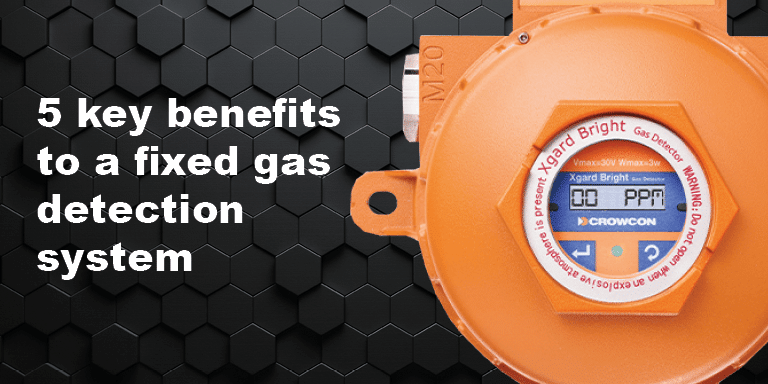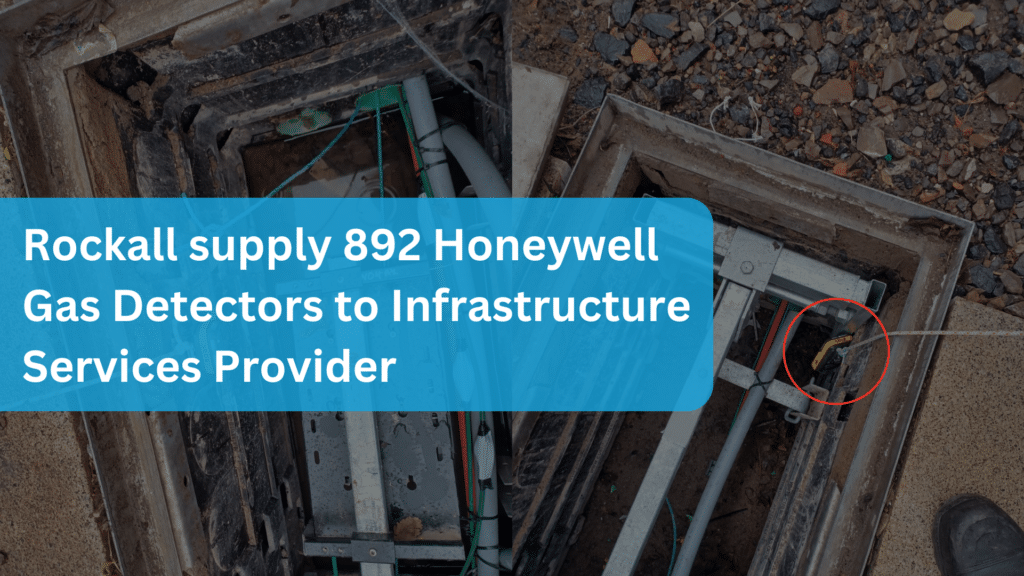
In this article, we discover the 5 key benefits of a fixed gas detection system.
1) Continuous Protection: Fixed gas detectors continuously monitor the surrounding environment for the presence of specific gases. They utilise various sensing technologies such as electrochemical, infrared, catalytic, or photoionisation detectors. This real-time monitoring promptly detects any hazardous gas leaks or emissions.
2) Cost-Effectiveness: While the initial investment in installing fixed gas detectors may seem significant, especially for large facilities or complex environments, the long-term benefits outweigh the costs. Fixed systems provide continuous monitoring, require minimal maintenance, offer scalability and flexibility, ensure regulatory compliance, and enhance safety and productivity in the workplace. Organisations can mitigate risks, reduce costs, and protect their most valuable assets – people and property.
3) Customisable: Fixed gas detectors offer tailored solutions by providing customisable detection capabilities, flexible sensor technologies, integration with existing systems, environmental adaptability, and application-specific configurations. By offering flexibility, reliability, and confidence in gas detection, fixed detectors enhance safety and mitigate risks in industrial, commercial, and residential environments.
4) Seamless Communication: Fixed gas detectors are designed to integrate with existing management and safety systems, such as building management systems (BMS), supervisory control and data acquisition (SCADA) systems, emergency shutdown systems (ESD), and fire alarm systems. Through standardised communication protocols, such as Modbus, BACnet, or OPC, gas detectors can exchange data and trigger coordinated responses with other safety devices and control systems in real time.
5) Environmental Compliance: Fixed gas detectors facilitate compliance with regulatory reporting requirements by providing accurate and reliable data on gas emissions and exposure levels. Many regulatory agencies require organisations to monitor and report emissions of specific gases, such as volatile organic compounds (VOCs), sulfur dioxide (SO2), nitrogen oxides (NOx), or carbon monoxide (CO). Most fixed detectors generate comprehensive records of gas detection events, alarms, and trends, which can be used to demonstrate compliance during regulatory audits or inspections.





Other Considerations
Each fixed gas detection system is unique, requiring a site survey conducted by a qualified installation engineer. It is strongly advised to consider the following factors during the survey:
Location
Assessing the monitoring location, including airflow patterns, is imperative. For fixed-point detection sensors, effective detection relies on gas passage across the sensor. Hence, if there’s a consistent airflow direction, positioning the gas detector “downwind” of the suspected leak source is essential.
Alarm Functionality
Determining the purpose of the fixed gas detection system is pivotal. In scenarios involving explosive gases or oxygen depletion, the system aims to alert of a gas leak, often through audible or visual alarms signalling a “SAFE – NOT SAFE” status, regulated by the controller’s relay output.
For monitoring toxic gases with STEL or TWA exposure limits, specialised data acquisition software becomes necessary to compute averages over specific time frames.
For more information on the fixed gas detection systems that Rockall Safety offers, click here: Fixed Gas Detectors | Fixed Gas Detection Systems (rockallsafety.co.uk)
Follow us on Linkedin.
Written by Rhys Redrup.





